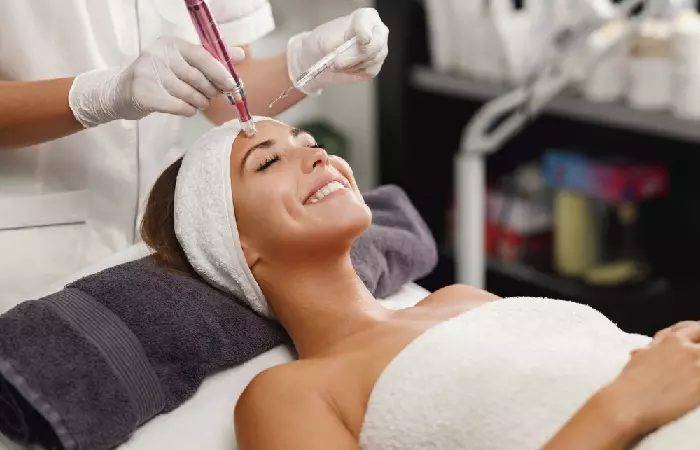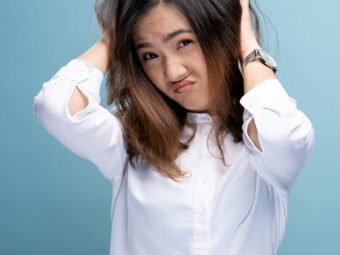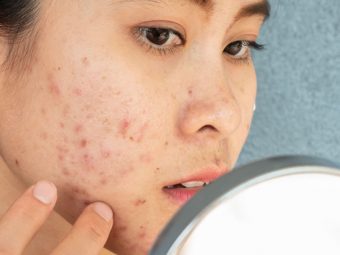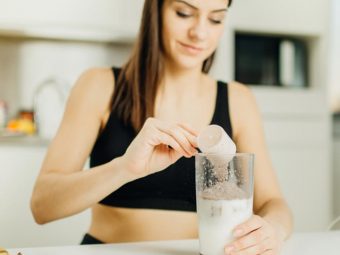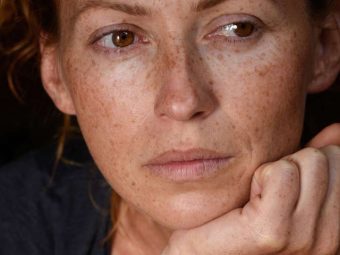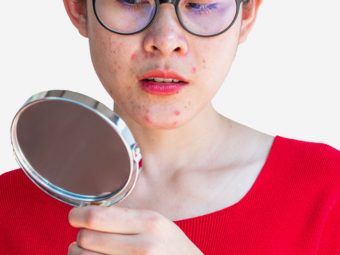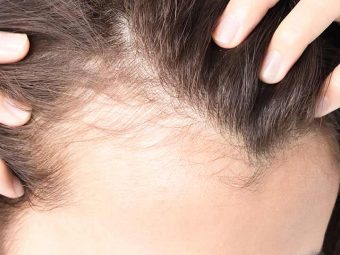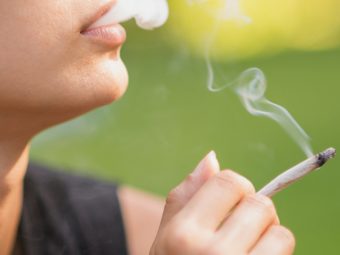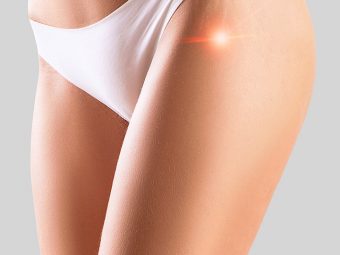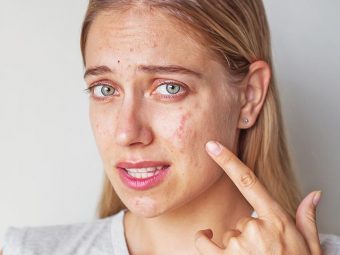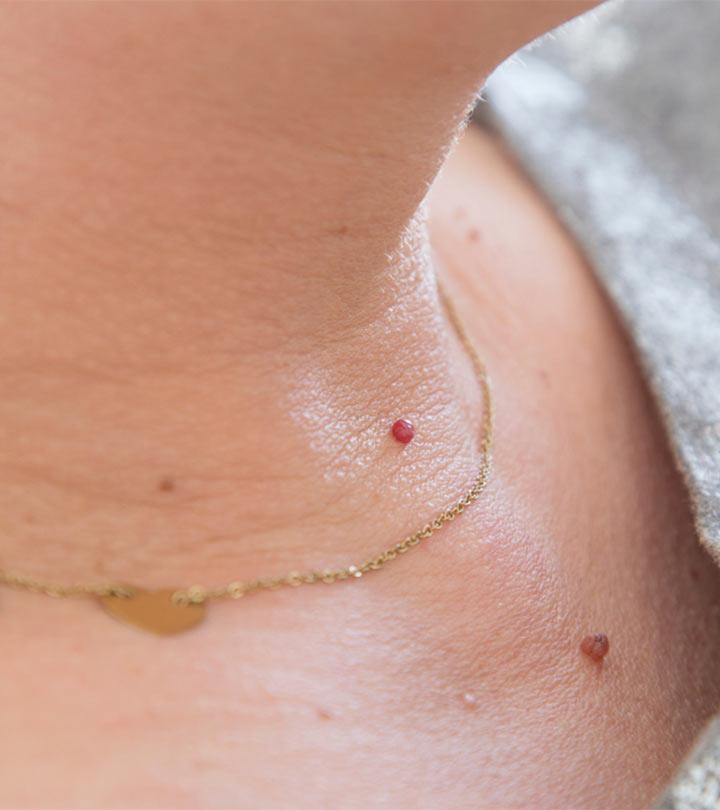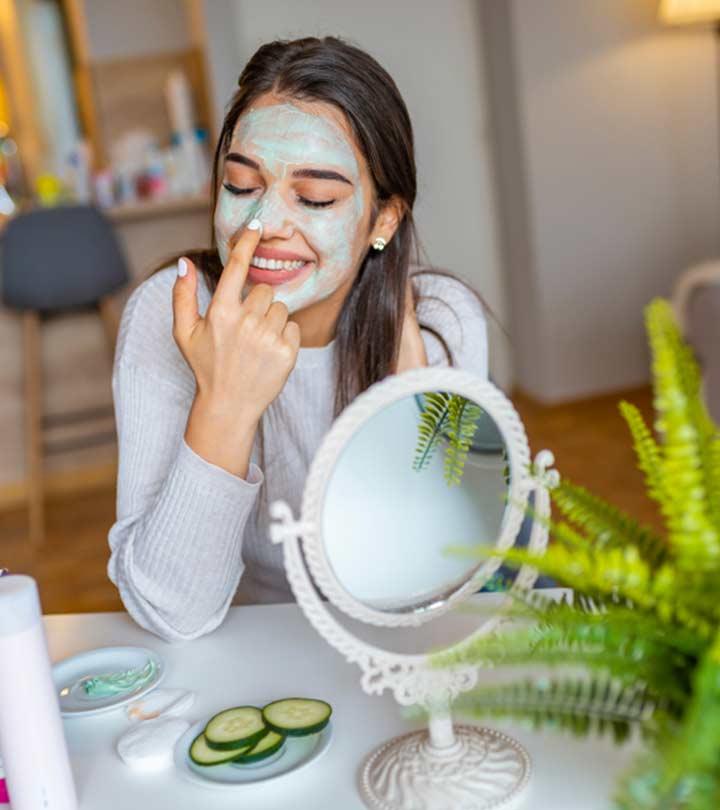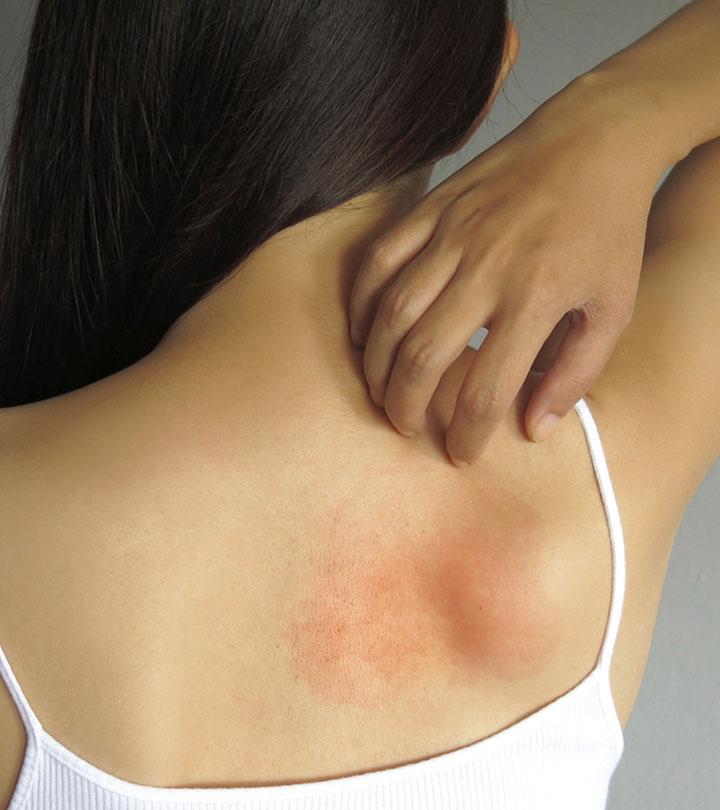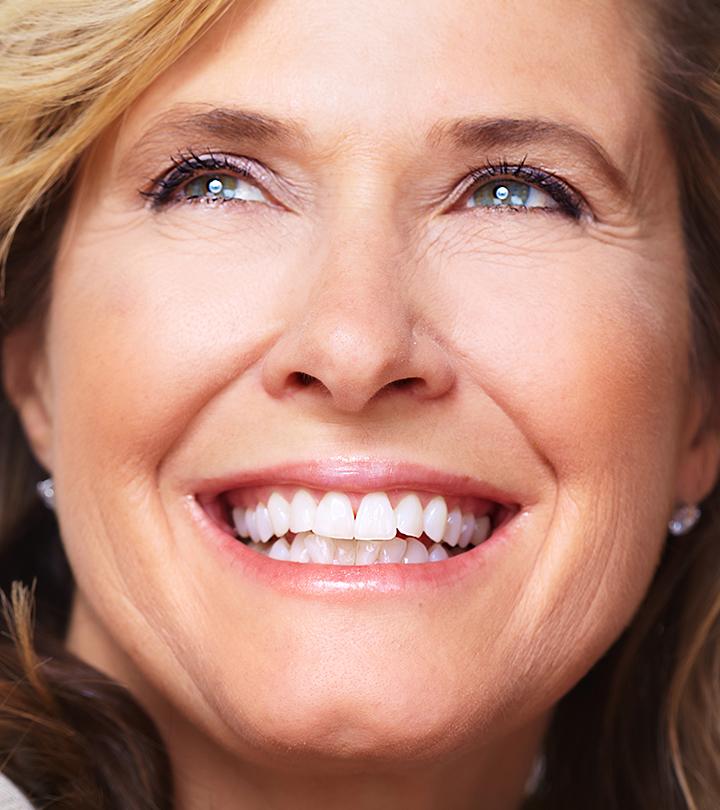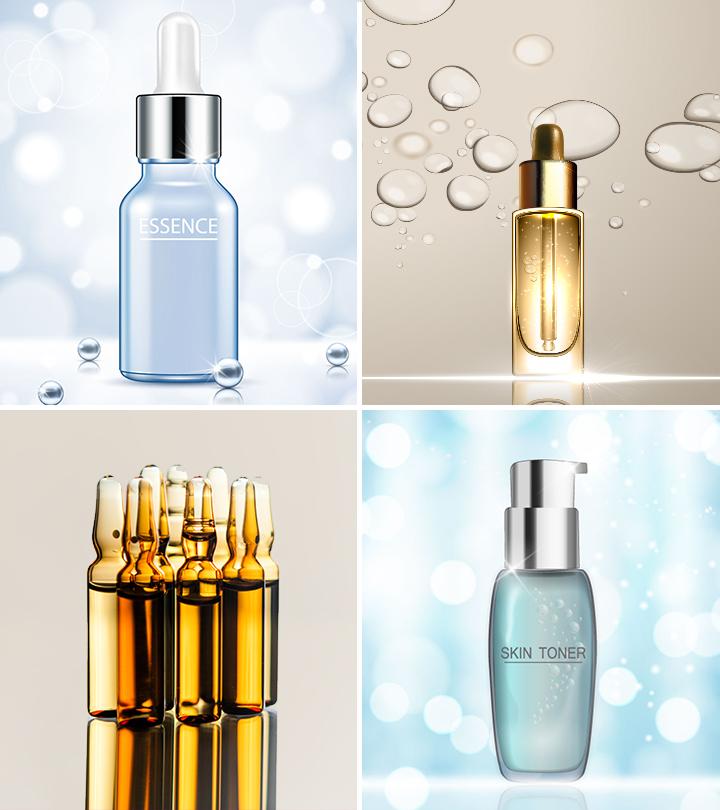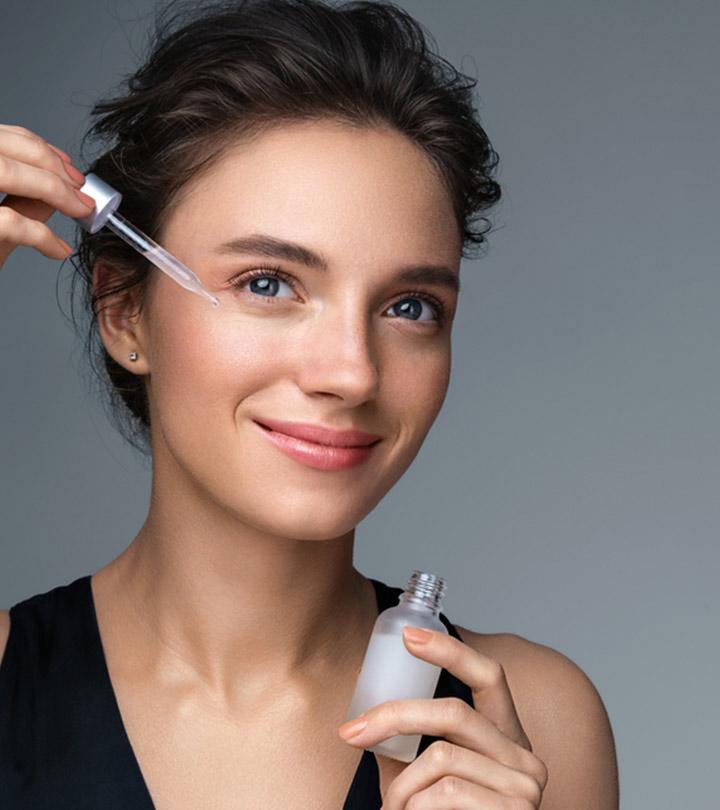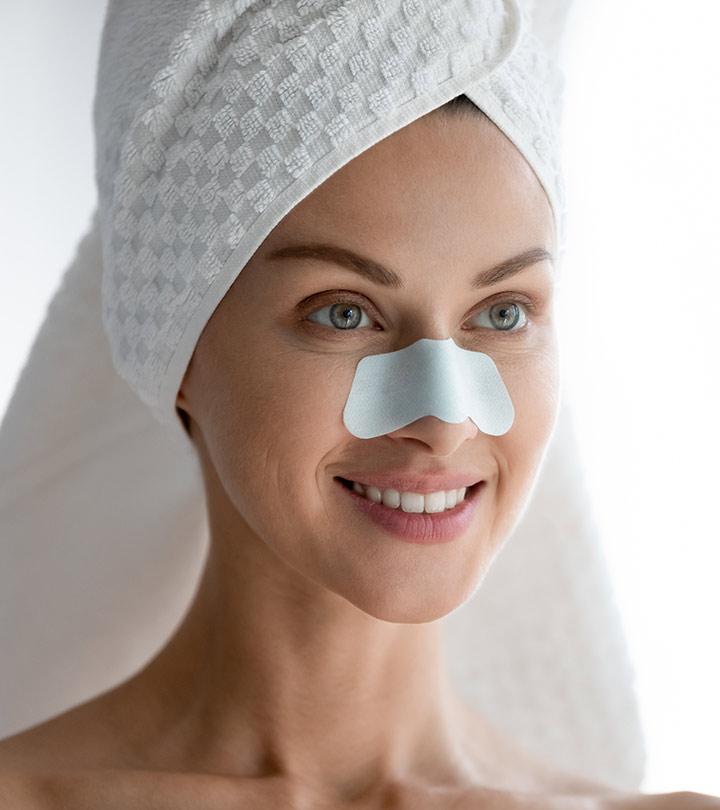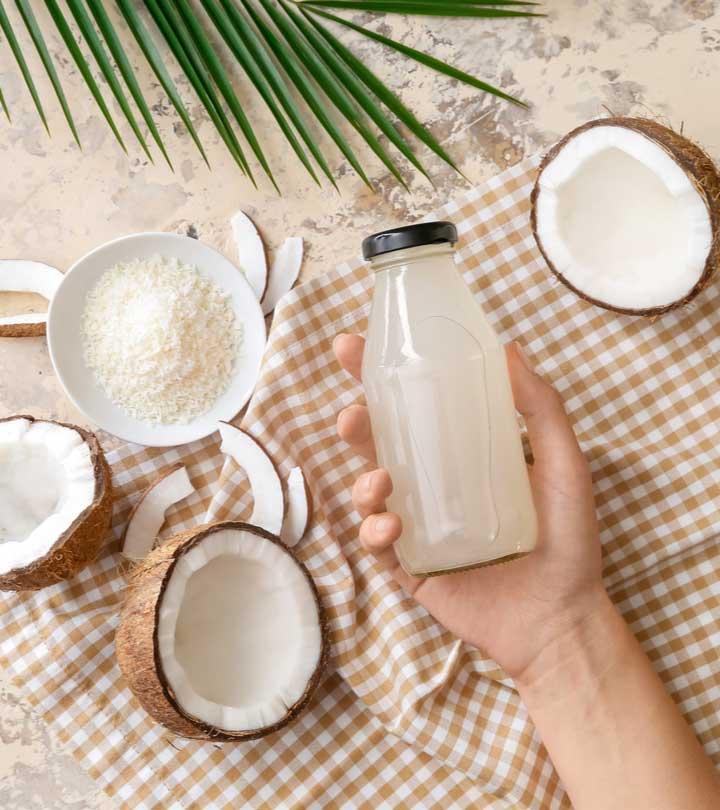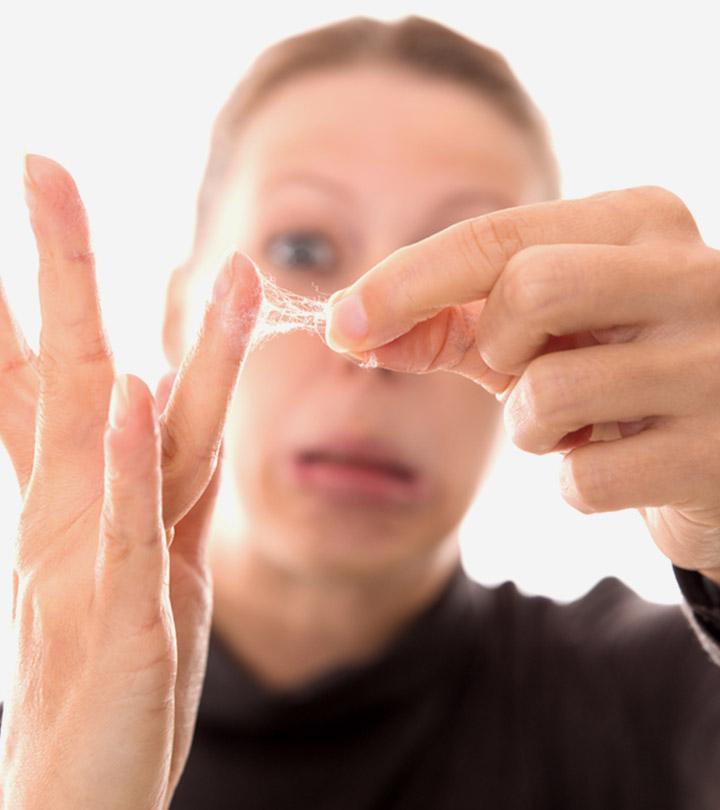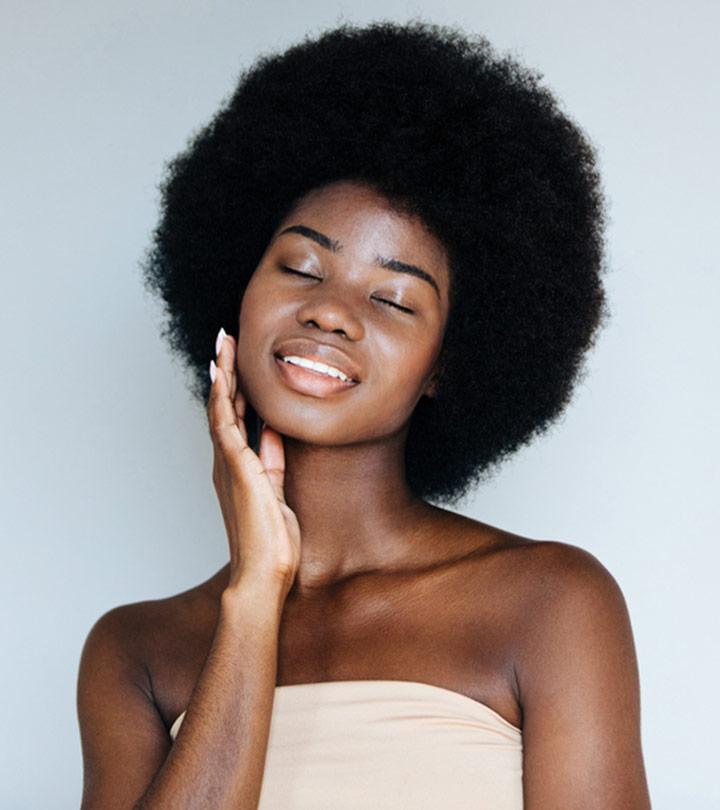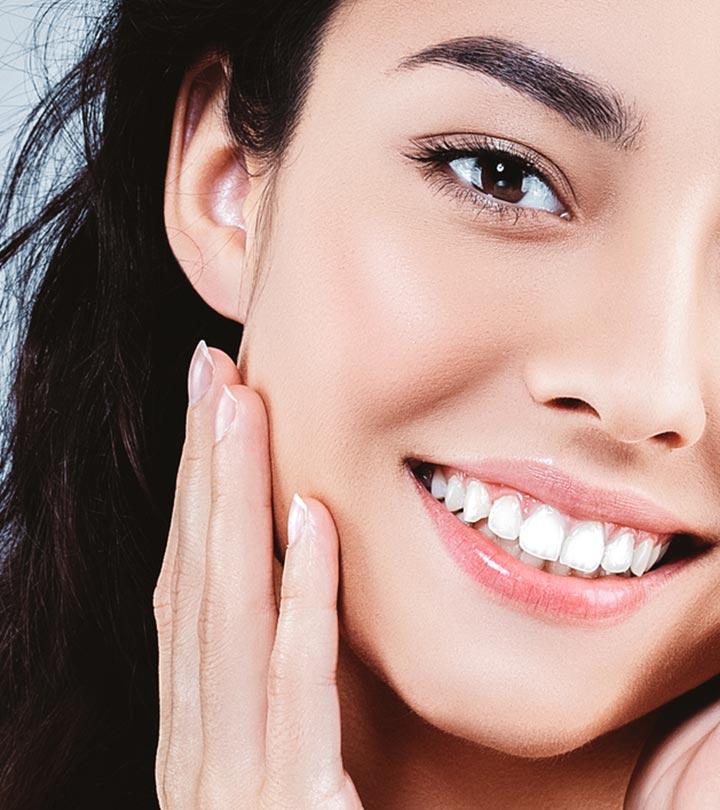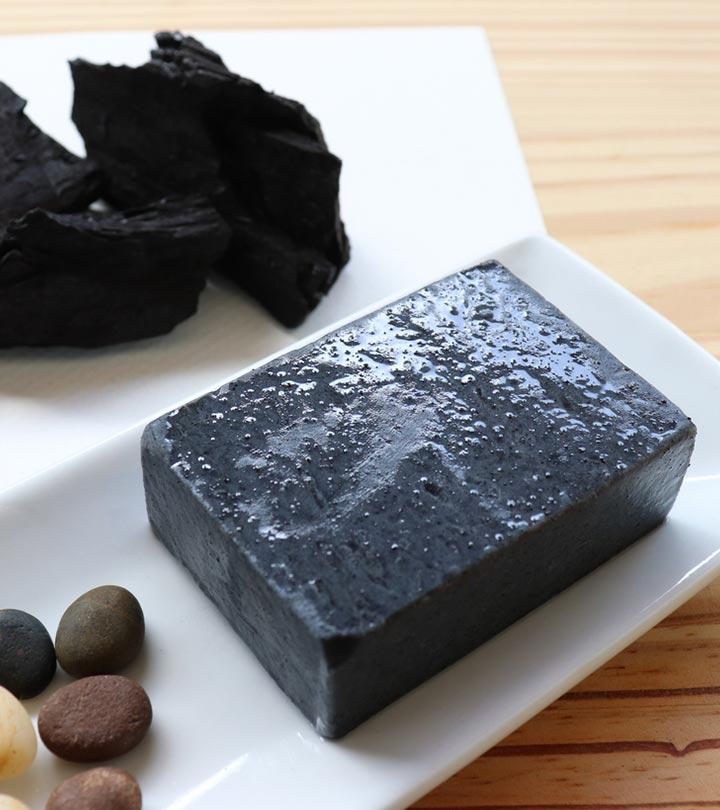When Does Acne Stop? Its Life Cycle & Treatment Options
Explore the life of acne to get rid of them and prolong your time with clear skin.
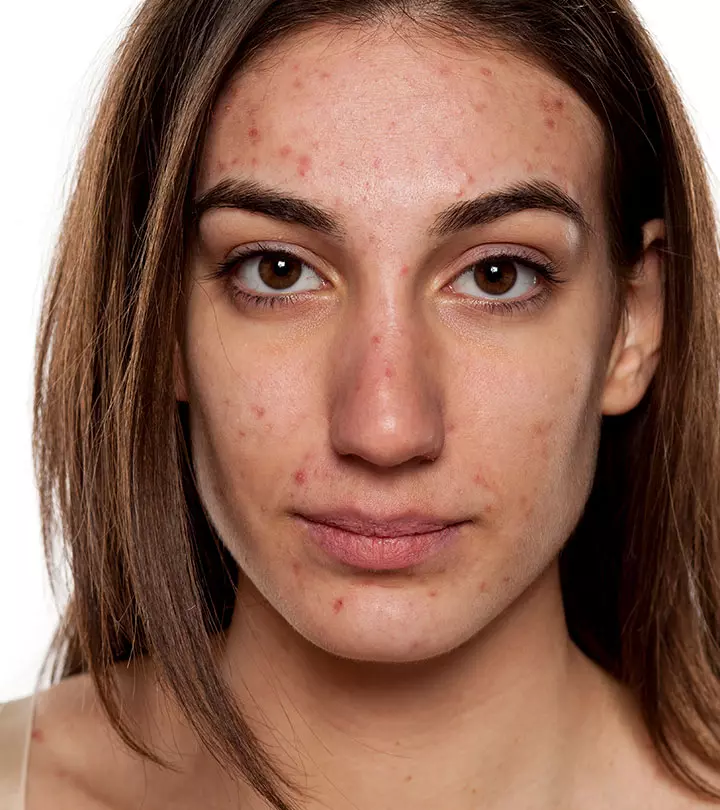
Image: Shutterstock
Many of us are indeed plagued with acne outbreaks despite the best efforts to avoid them. We often associate acne with puberty and keep wondering when does acne stop or if it goes away after a certain age. Don’t worry. We have the answer.
Acne commonly appears throughout adolescence and gradually fades as people grow older. However, some people may develop painful acne during adulthood. This often leads to emotional and mental discomfort.
Fortunately, by learning the common causes of acne and how to treat it, you can easily combat the condition. Continue reading to understand when acne usually stops and other answers to common acne-related issues. Scroll down.
In This Article
What Is Acne?
Acne is an inflammatory chronic skin condition. Your skin holds billions of pores responsible for maintaining body temperature, skin pH, and hydration level. Acne usually occurs when these pores get clogged with sebum, oil, and dead skin debris. This blockage of skin pores causes blackheads, whiteheads, and dry or pus-filled pimples.
 Trivia
TriviaWhile the most common age when acne occurs is between 13 to 25 years, this problem can last longer in many men and women. To understand when acne usually stops for teenagers and adults, let’s understand how pimples are formed.
What Is The Life Cycle Of A Pimple?
A pimple usually takes around 1-2 weeks to fully develop (1). While you may think that they develop overnight, in reality, it is a long process that includes weeks of developing and growing.
Microcomedones – tiny bumps that are not visible to the naked eye – first begin to form on the skin. The oil glands in the epidermis get stimulated by hormones that become overcharged and start secreting excess oil (1).
Numerous infected spots break out from the whiteheads or pimples already existing in the area within the skin pores. Bacteria can get stuck between these pores and start multiplying to create acne.
Now that you know how pimples form on the skin, let us see how long they take to disappear.
When Does Acne Really Go Away?
To understand when acne stops for guys and girls, you also need to recognize the underlying cause behind the skin condition. Based on the cause of the breakouts, you can figure out when the acne will diminish.
1. Puberty
During puberty, many hormonal changes occur in the male and female bodies, resulting in breakouts and inflammation. Androgens, estrogen, and progesterone are some hormones that not only change physical appearance but also amp up oil production and acne in both sexes (3). However, acne during puberty or adolescence usually fades with time (as you grow out of puberty) or medical assistance.
2. Genetics
If someone in your immediate family has a medical history of mild or severe acne, chances are you have the same problem. One study found that 81% of acne is attributable to genetics (4). If acne runs in your family, it may not completely go away. Hence, consult a dermatologist and inform them about your family acne history to get appropriate treatment.
3. Stress
Stress is a very common cause of acne. Excess stress increases the levels of cortisol (the stress hormone) in your body. This hormone can lead to higher sebum production and inflammation in the skin, leading to breakouts (5). In some cases, identifying the cause of stress and finding healthy ways to cope can help you treat acne effectively.
Among 6700 participants of a global survey, 51% experiencing acne face high levels of stress. Also, 54.6% of those with acne reported sleep difficulties compared to those without. These findings suggest a strong connection between stress and acne, highlighting stress as a significant contributing factor to the development of acne.
4. Adult Acne
Adult acne is the most critical form of acne that usually starts after 25 (6). While men are also prone to adult acne, this problem is more common in women. Some of the most common causes include PCOS and menstrual disorders.
If you are experiencing mild or severe adult acne, addressing these underlying issues with the help of lifestyle changes and medication can help control the breakouts. However, the acne may take time (a few months) to fade away.
If you have adult acne and are looking for skin care tips to prevent further breakouts, read the next section to know more.
How To Address Adult Acne
Are you wondering when your hormonal acne will stop? Here are some efficient ways to address your adult acne.
1. Use A Gentle Cleanser
Using skin care products with harsh chemicals can aggravate your acne problem. Instead, pick a salicylic acid-based cleanser that gently cleanses your pores. This beta-hydroxy acid (BHA) has antibacterial and antimicrobial properties that can eliminate acne-causing bacteria (7). Avoid BHAs in case you have irritated skin and use a mild cleanser.
2. Choose The Right Shampoo
Using the wrong shampoo is claimed to be another cause of adult acne, especially near the hairline. Some shampoos contain oils that block the pores and cause acne. If you think this is the cause of your adult acne, you can try switching to a different shampoo.
3. Avoid Touching Your Face
Constantly touching your face can transfer oil and dirt from your hands to your face, thus worsening the acne. Picking on pimples can further lead to scarring and inflammation. However, if you feel you cannot keep your fingers away from your face, consider using pimple patches to heal your breakouts faster.
4. Stay Away From Comedogenic Products
If you have adult acne, make sure that your skin care routine includes products that are oil-free and non-comedogenic. Using an oil-free product ensures that the pores do not get clogged and also reduces breakouts.
5. Consult A Dermatologist
If your adult acne persists, you must immediately consult a dermatologist who can prescribe the appropriate medication according to your acne severity and skin type.
 Quick Tip
Quick TipCheck out some popular treatments for adult acne below.
What Are The Treatments For Adult Acne?
Dermatologists usually prescribe the following treatments for adult acne:
- Gel, Lotions, And Topical Creams: These medicated skin care products contain acne-fighting ingredients like tretinoin and benzoyl peroxide (8 ), (9).
- Oral Tablets: Pills, such as oral contraceptives, are prescribed by dermatologists to treat severe acne (10).
What treatments are available when these acne leave scars? Find out in the section below.
What Treatments Are Out There For Adult Acne Scars?
You can undergo various treatments to address adult acne scars. These techniques offer effective solutions to improve skin texture and appearance.
Common dermatological interventions like laser therapy, microneedling, and chemical peels help diminish scars by stimulating collagen production and resurfacing the skin.
Laser treatments, such as fractional laser therapy, target scarred areas, promoting skin renewal and reducing the appearance of scars. Microneedling involves tiny needles that create controlled injuries, triggering the body’s natural healing process and enhancing collagen formation. This can help reduce the visibility of scars over time. Chemical peels exfoliate the skin’s top layer, encouraging new skin growth and minimizing scars’ prominence.
Apart from hormonal imbalance, there can be numerous other causes of adult acne. Find out what these are below.
Other Reasons Behind Adult Acne
Often, the cause behind your acne has nothing to do with hormones – instead, it could be a reaction to some other external factor. By addressing the following causes, you can minimize your acne and get clearer skin.
1. Allergies
If your skin breaks out when you consume certain foods or step into a dusty place, you are probably allergic to those foods or dust. Consult a doctor and get an allergy test done to identify the triggers of your acne.
2. Change In Medication
Changing your medication can create a hormonal imbalance and result in breakouts. One such common medication is birth control, which typically contains estrogen and progestin. When you stop taking this medicine, it may cause acne.
The answer to the question “When does acne stop?” is not definite. It differs from person to person. Acne is one of the most annoying skin issues that does not go away easily. Various reasons cause acne, including puberty, genetics, stress, and lifestyle issues. While acne caused due to stress and puberty clears up easily, the ones caused by genetics and hormones take a longer time. There are gels, lotions, oral medications, and topical ointments to help treat acne. With the right treatment and a few lifestyle changes, you can easily get rid of acne.
Frequently Asked Questions
Will acne go away if I ignore it?
In some cases, acne may go away on its own, while in some other cases, ignoring it may lead to more pain and discomfort. You may need a proper skin care routine and treatment to get rid of acne breakouts.
Should I just leave my acne alone?
It is always best to leave acne alone instead of popping the pimples. However, you should also treat it with the right products and wait for it to heal.
Why do I have acne in my 20s?
Excess oil and bacteria, stress, and fluctuating hormones are the most common causes of acne in your 20s. Find out what is causing your acne and seek proper treatment.
Does ice help acne?
Yes, applying ice may help reduce the inflammation caused by acne.
Key Takeaways
- Acne is a chronic skin condition that develops when your pores become clogged with excess oil, dirt, and dead skin cells.
- Acne takes 1 to 2 weeks to develop and is caused by puberty, genes, allergies, or stress.
- Avoid touching your face and use a salicylic-based cleaner to clean your face gently and reduce acne.
- Your dermatologist may prescribe topical creams with benzoyl peroxide or oral contraceptives to treat adult acne.
Waiting for acne to clear up can be frustrating. The video below helps you understand the factors influencing acne and offers practical tips for achieving a radiant complexion, making your journey to clearer skin smoother. Click play to watch!
References
Articles on StyleCraze are backed by verified information from peer-reviewed and academic research papers, reputed organizations, research institutions, and medical associations to ensure accuracy and relevance. Read our editorial policy to learn more.
- A review of diagnosis and treatment of acne in adult female patients
https://www.ncbi.nlm.nih.gov/pmc/articles/PMC5986265/ - Skin Conditions By The Numbers
https://www.aad.org/media/stats-numbers - Hormonal treatment of acne vulgaris: an update
https://www.ncbi.nlm.nih.gov/pmc/articles/PMC5015761/ - The Influence of Genetics and Environmental Factors in the Pathogenesis of Acne: A Twin Study of Acne in Women
https://www.jidonline.org/article/S0022-202X(15)30101-9/fulltext#secst0075 - The association between stress and acne among female medical students in Jeddah Saudi Arabia
https://www.ncbi.nlm.nih.gov/pmc/articles/PMC5722010/ - Adult Acne Versus Adolescent Acne
https://www.ncbi.nlm.nih.gov/pmc/articles/PMC5788264/ - The influence of various factors on the human resident skin flora
https://pubmed.ncbi.nlm.nih.gov/2285575/ - Tretinoin microsphere gel in facial acne vulgaris: a meta-analysis
https://pubmed.ncbi.nlm.nih.gov/18724648/ - A current review of topical benzoyl peroxide: new perspectives on formulation and utilization
https://pubmed.ncbi.nlm.nih.gov/18984364/ - Use of oral contraceptives for management of acne vulgaris and hirsutism in women of reproductive and late reproductive age
https://www.ncbi.nlm.nih.gov/pmc/articles/PMC5925193/





